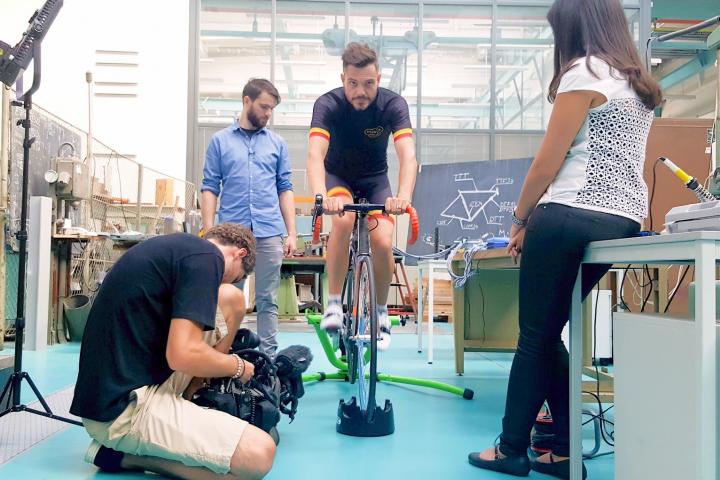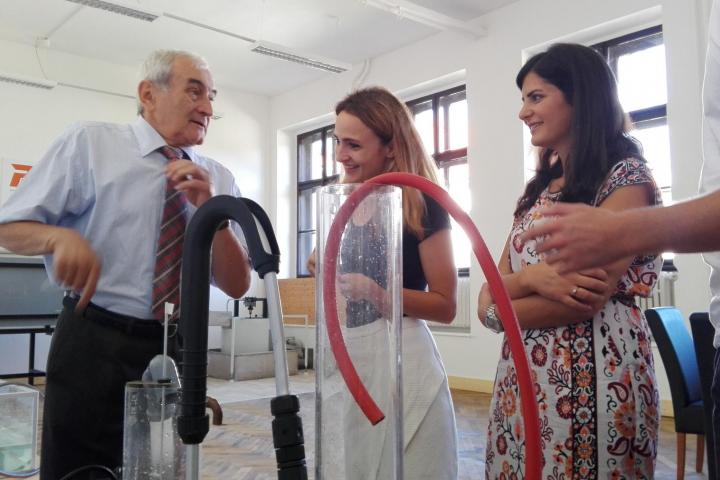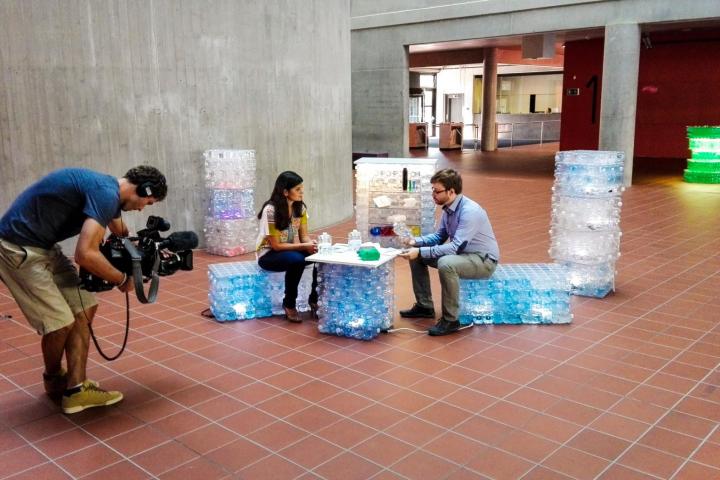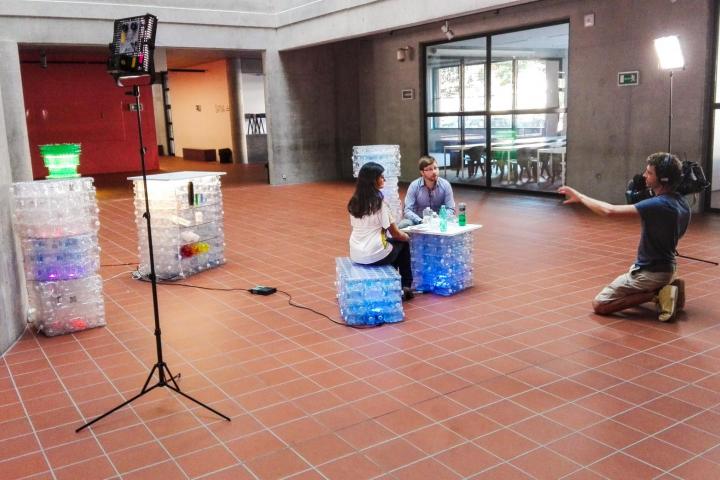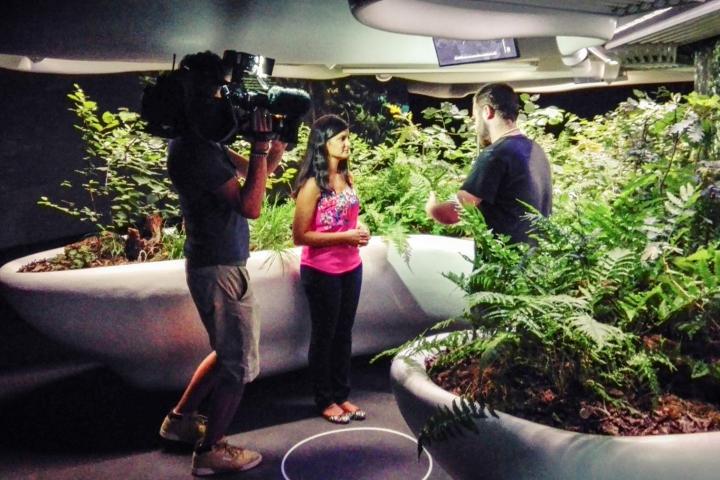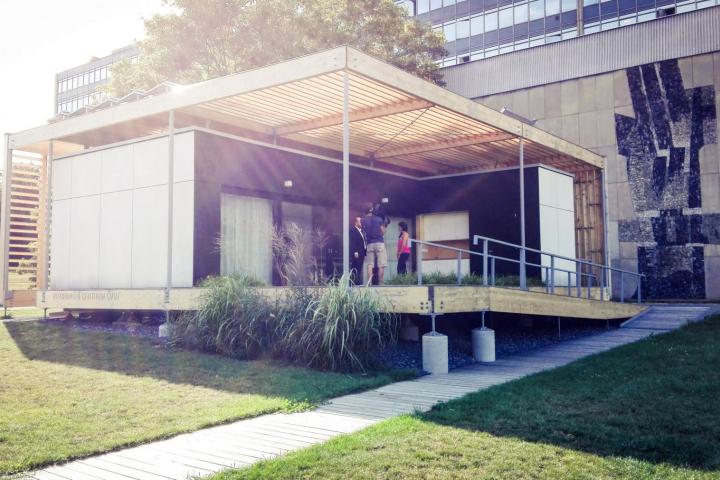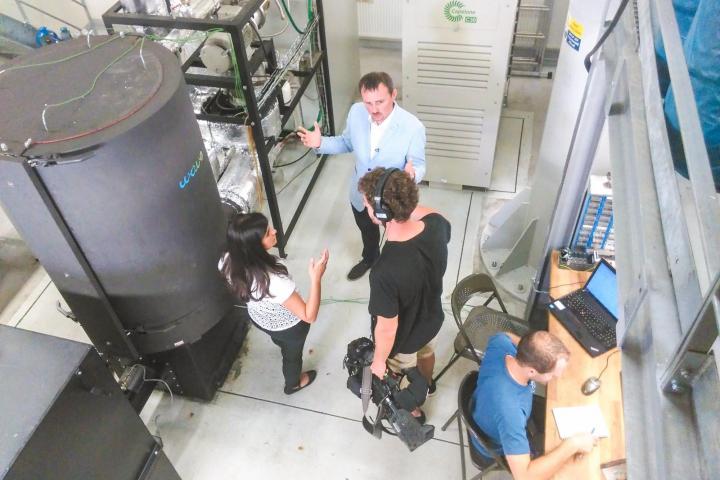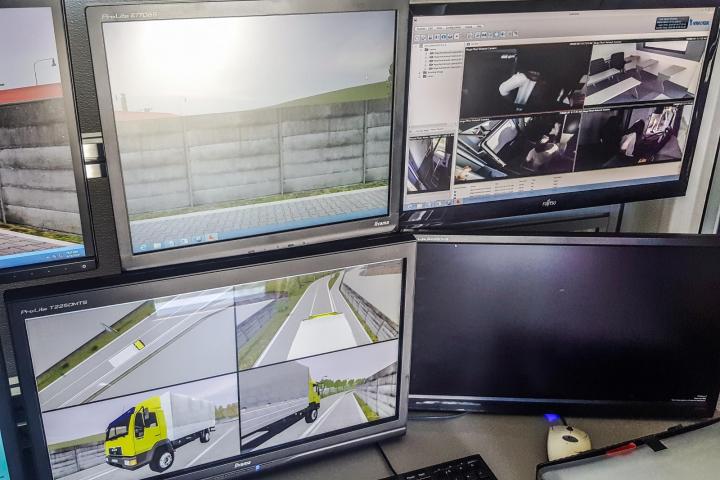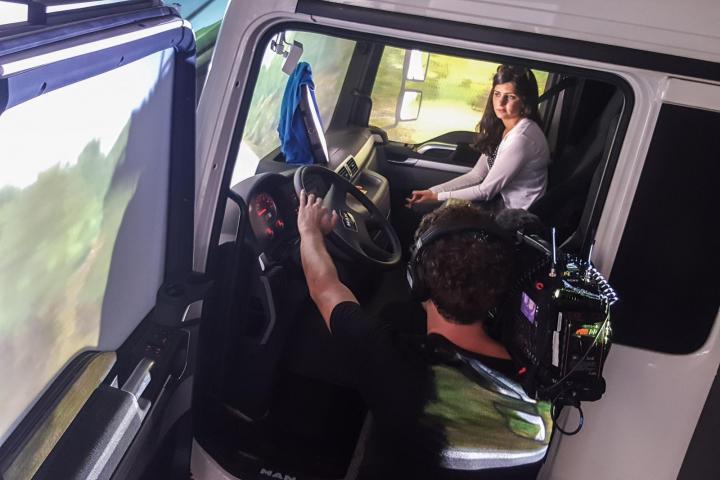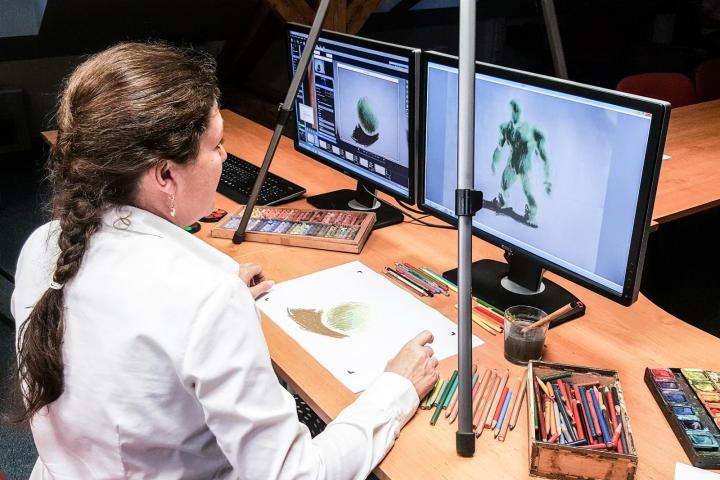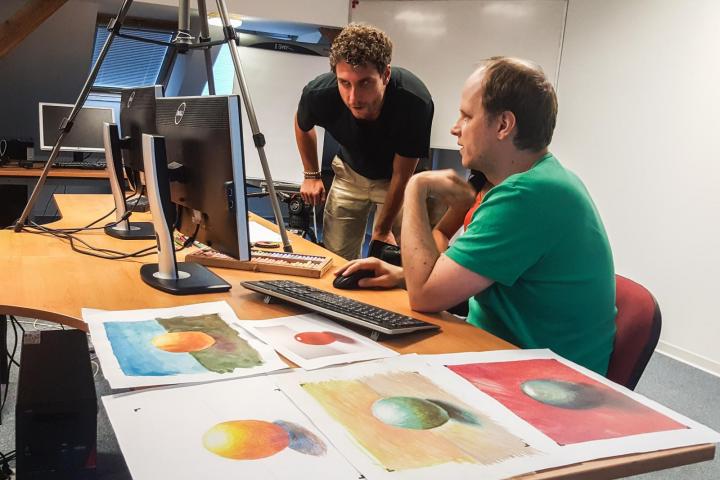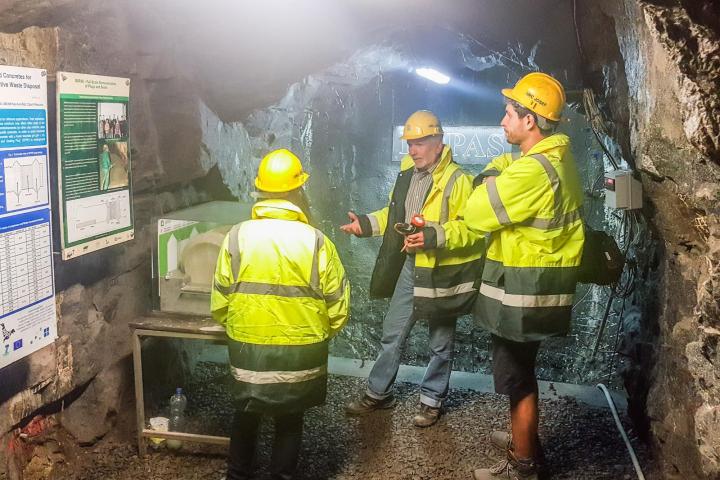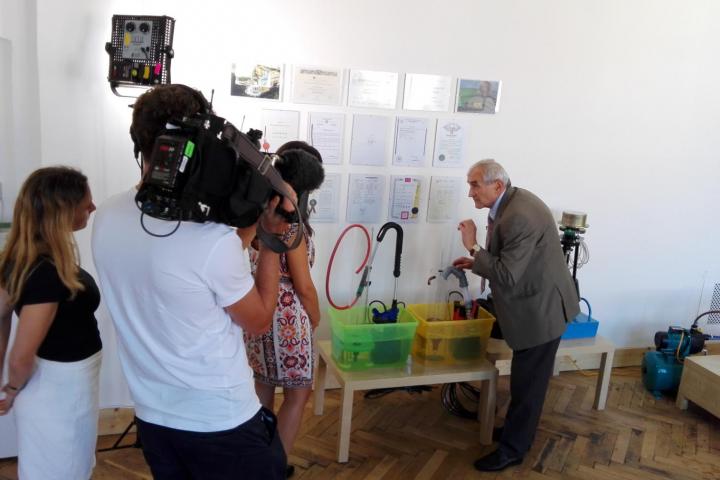
Reporters chose PET-MAT project to represent the Faculty of Architecture, as its aim is to prove that used PET bottles are valuable raw materials usable in architecture. The BBC also took look inside the AIR House, the energy self-sufficient house by team of CTU students, with which they had won several prizes in the Solar Decathlon 2013 international competition in USA. It had recieved first prize in architecture and energy efficiency, 2nd place in technology and 3rd place in the market attractiveness, comfort and hot water.
Doc. Miroslav Sedláček from the Faculty of Civil Engineering was among the finalists of the European Prize for Inventors this year. Together with his colleagues, doc. Jiří Novák and doc. Václav Beran, he worked on development of the rolling turbine and had received a patent for it. This turbine is a potential game changer in the system of extracting energy from water and can move it forward considrably. Based on the vortex effect - the physical principle of rotating fluids, it produces electricity from hydrokinetic energy. Rolling turbine can generate energy in slowly flowing streams, rivers or sea tides, making it a revolutionary alternative and supplement source in energy generation from conventional hydroelectric power plants that require substantial flow or high drop of the water. The laboratory doc. Sedláček´s team is located near Teplice.
Reporters chose PET-MAT project to represent the Faculty of Architecture, as its aim is to prove that used PET bottles are valuable raw materials usable in architecture. The BBC also took a look inside the AIR House, the energy self-sufficient house by team of CTU students, with which they had won several prizes in the Solar Decathlon 2013 international competition in USA. It had recieved first prize in architecture and energy efficiency, 2nd place in technology and 3rd place in the market attractiveness, comfort and hot water.
At the Faculty of Mechanical Engineering, the BBC crew filmed a unique Festka bicycle on which students of the faculty, together with experts in the field, develop a special frame with high stiffness and damping characteristics that outperforms the competition. The bike´s frame loses less energy than other frames. The road bike will be also unique with its weight as it will be less than 5 kg. The CTU University Centre of Energy-efficient Buildings in cooperation with the Faculty of Mechanical Engineering had offered the prototype of WAVE micro-power plant that generates heat and electricity from biomass. The device is intended for installations with a relatively low heat consumption, has a heat output of 50 kW and a net electrical output of 2 kW. It is the smallest biomass power plant in the world. By combining multiple thermal cycles, experts are able to achieve quadruple efficiency of electricity generation in the future. Faculty of Transportation Sciences unveiled an interactive laboratory with advanced truck simulator, which is a part of the mobile training center. This is basically the Road Feeder trailer which houses modern classroom and simulator. Faculty of Transportation has designed the entire system within its own departments(except motion platforms). The simulator consists of truck cab with a virtual reality projection of interactive driving of a real vehicle. The laboratory serves the Dekra company for professional drivers´ training, while CTU uses it as a tool for scientific and research projects dealing with drivers, interaction of man and machine (HMI), safety driving, distraction, ergonomics and design of cockpit elements and also as a research platform for development of stimulator technology, in which the faculty is engaged for many years. The Faculty of Electrical Engineering presented StyLit, the new software tool for automated styling of 3D image that can faithfully reproduce artist´s style and create realistic synthetic paintings.
The BBC crew spent its last day filming in the Josef underground laboratory (workplace of Faculty of Civil Engineering), developed from the former probing mine Josef near Slapy dam. Almost 6 km of underground space put into operation provides unique facilities for regular training of students, research projects, training courses, excursions for professionals and public. Topics of research projects here are mainly related to radioactive waste management. Among the most important projects carried out here is the in situ construction of a physical model of experimental pressurised sealing plugs for deep geological radioactive waste repository within the DOPAS european project and in situ construction and operation of the physical model Mock - Up Josef, simulating a vertical container storing burned nuclear fuel.
